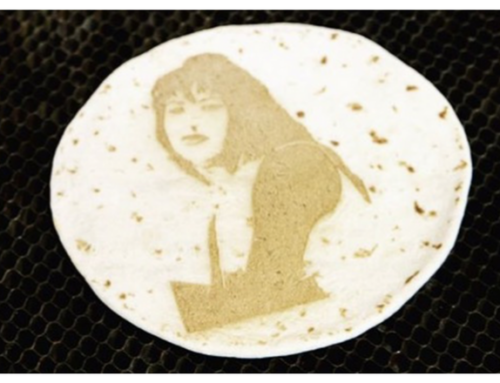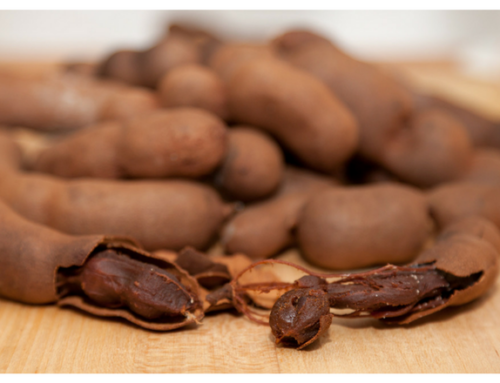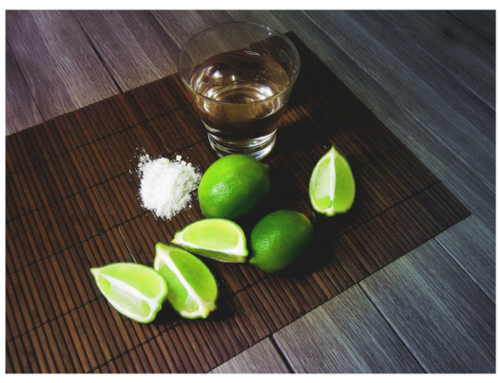Calling chef Virgilio Martinez a culinary superhero is kind of like calling hipsters annoying. Surprise! #LateAdopter. Central, his vaunted restaurant in Lima, Peru, is currently rated No. 1 in Latin America and No. 4 in the world, and before Martinez was manning its ship, he was opening restaurants for chef Gastón Acurio in Bogotá and Madrid. Translation: his superstar status is not new news.
But there’s more to Martinez than his chef’s toque. In fact, he’s a former skateboarder turned philanthropist and botany lover who regularly risks his life foraging for edible plants and works 18 hours a day with his wife (and enjoys it!).
Basically, he’s like every successful person you know: complicated, curious, focused, and multi-faceted. In a recent exclusive interview, I asked Martinez about all of his life’s loves. Here’s what he had to say. [pagebreak]
First off, you’re at No. 1 on Latin America’s 50 Best. You started at No. 50 two years ago and jumped 35 spots to No. 15 in 2014. How do you explain this jump to the front of the line inside of 24 months?
Well, actually it’s been kind of gradual for us. We deliver great experiences, great food, great emotions. It’s an important recognition, being in the 50 Best awards, but we are doing what we’ve always done, and we’ve worked for it.
What do you think of the culinary world’s current obsession with Peru?
We have so much gratitude for it, but it’s not mine or yours, really. It’s just our country. We depend on our producers, our products, our landscapes. Everything that is happening in Peru is so fantastic; it’s really just the execution of all of Peru’s stories and people and emotions.
Tell me a little bit about Mater Iniciativa, the food philanthropy that you established in 2013: what you do, what your agenda is, what your goals are…
Mater Iniciativa is kind of our soul. We feel connected to nature in a real, authentic way. When I say authentic way, I am mean in a real Peruvian way. We are always inspired by different gastronomy but we are also now finding our own gastronomy, our own path, our own reasons to cook. [pagebreak]
Let’s get controversial: Some say that introducing the world to indigenous ingredients is dangerous because it negatively impacts the communities that produce these ingredients. For example, does the global demand for quinoa negatively affect water and land use or force producers into commodity versus subsistence farming? What is your opinion on that?
Well, I think that’s why our approach has to be different. We don’t want to repeat what happened 10 years ago with things like quinoa. So nowadays, we work with different participants: anthropologists, biologists, geographers. They work with us as translators. They make us understand what’s going on with people and how can it affect one community and one region in different parts of Peru. We don’t want to just go and grab stuff and make whatever we think is magic… We really want to focus on new things that are ethical.
And that benefit the communities that are providing these ingredients?
Of course. We have to benefit them. We just can’t be selfish anymore. Peru is not a wealthy country. We are very rich in knowledge, culture, ingredients, and nature; so we have to be very clever about their use and have a goodwill approach.
Almost like an equitable distribution of those resources, because those resources are the countries riches.
Yes, exactly. Nowadays gastronomy is a way of communicating, and we can use it to communicate what is happening in the [food] business. We have to figure out the future [of food] and not just what is happening right now, not just focusing on individual success. We truly believe that the success that we are having at Central depends on the success of Peru and Peruvian soil. [pagebreak]
Back to something a little less serious… You’ve opened restaurants in London – two, I think? How does the food that you present at Central, where the majority of your diners are probably Peruvian, differ from what you’re bringing to British and European diners who are probably less familiar with classic Peruvian food?
What we do at Central is more conceptual. It’s more attached to Peruvian soil. It’s more thinking about biodiversity. Central only serves 50 people, and we are 68 people working in the kitchen, so it has a different approach in terms of food. We only do tasting menus, and each course is conceptualized around different kinds of food. We have a team of seven guys who travel to different altitudes of Peru; our menu is conceptualized around, concentrates on the altitudes of Peru. Actually, around biodiversity. At Lima London, what we do there is totally different. Really, we just want to show what is happening in Lima right now in a very casual way.
So speaking of those foraging/trekking trips: How often do you do them? Is it an overnight trip? Is it a week-long thing? What does it look like when you’re going through the Amazon?
It is very different for everybody. You can never tell what’s going to happen because of the weather and because of other things that might happen. We do at least four trips per month. Some of them can take two to three days; some of them can take more. Sometimes I go with the team; sometimes I can’t because I have to be in the restaurant or I have to be traveling. But the team has a schedule a way of working. The trips are, in a way, the soul of all of the food we serve. I think this is the best way to translate what is happening in Peru right now.
So, I know you just had a cookbook come out in early October. You also have a long-term project in the works that’s slated for release next year, yes?
Yeah, we have two books. The one we just released is about Lima restaurant in London, and I would say it’s more home cooking. It has recipes that make it easy to understand Peruvian cuisine with ingredients that you can find everywhere in the world. So it’s not just things that appear in the Amazon, things that are not approachable. The project that we are doing with La Central y La Mater Iniciativa is going to be called Altitudes. It’s a whole trip we do. We’ve done it for four or five years now… from the Amazon to the Andes to the coast. So it’s more like the concept of Peruvian biodiversity and how we bring that to Central.
Any inside scoop on when we can expect that next year? Do you already have a date in mind?
October, 2016. We’re working very hard to make that happen. It’s difficult to give a sense of place and bring up all these emotions that we’ve been having in these last five years and all the inspiration coming from the last book, coming from the people, coming from the products. I think this book is going to be something that really can help us to understand what the hell are we doing this for. [pagebreak]
Have you always been this curious? I mean, what were you like as a kid? Were you out running around foraging and trying to discover things or did that happen after you fell in love with cooking?
Well, I did have the idea that I was going to end up in the kitchen. I used to be a skateboarder. I was very hyperactive. My mother is an artist, and I think I had her natural instinct for art. The first time I entered a kitchen I got the feeling that it was my habitat. I felt like I was home. That’s the main reason I’m cooking; when I’m in the kitchen I fee like this is home and I don’t want to leave.
Wait…a skateboarder? What kind of skateboarding? Are you a longboard or a trick guy?
I’m a trick guy. I actually wanted to become a pro skateboarder when I was young, but I broke both of my shoulders in a contest in a skatepark. After this accident, I said to myself, I gotta’ do something else….
You own Central and operate the restaurant with your wife Pía. I’m wondering what that’s like, living and working with your wife. You said once in an interview that it’s a beautiful thing, your work-life relationship. What does that look like at the end of the day when you go home? Do you close the kitchen and then continue talking about food and the restaurant and work?
The first two years, we kind of had a few problems because we were so focused on food and what was happening at the restaurants. But now when we go home we don’t talk about the restaurants. We talk about food, of course, but we don’t talk about the restaurants. The restaurants are something different. The restaurants have an execution, an administration, a lot of things that are really, really complicated. So we leave that at work. At home, we continue enjoying food, we continue cooking. I always get asked this question, how does it feel to work with your wife? It’s fantastic. When we’re in the kitchen and we’ve spent 18 hours together… well, you spend these 18 hours with the person that shares your passion and it’s nice.
I imagine you have a kind of shorthand when you know someone so well. You can just almost say one word and they know what you need.
We just communicate with the eyes and emotion. We don’t even have to talk.
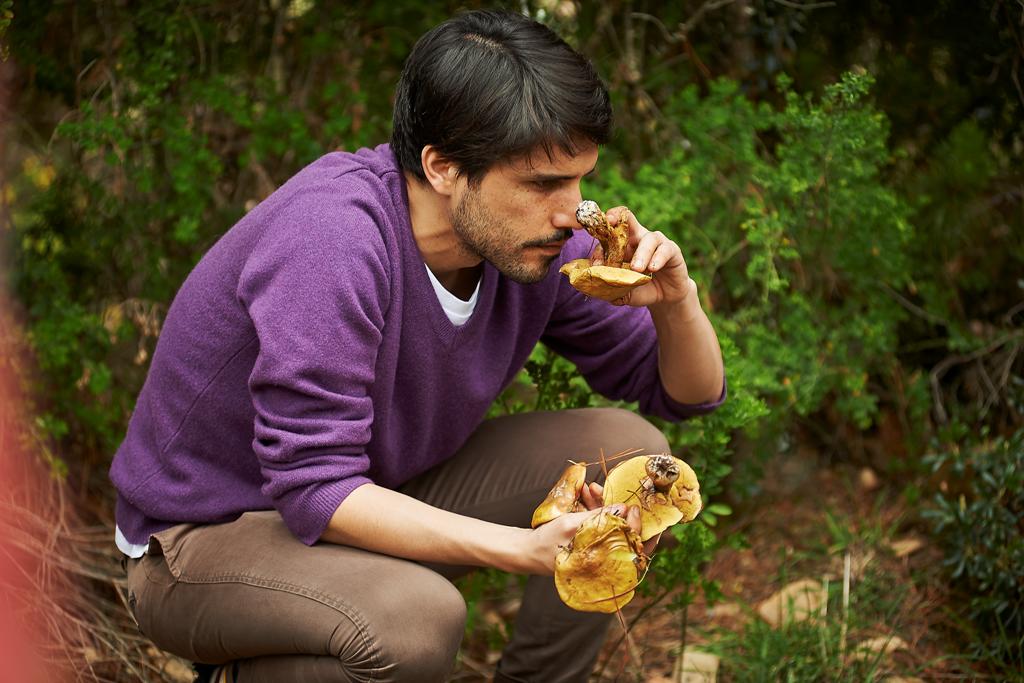
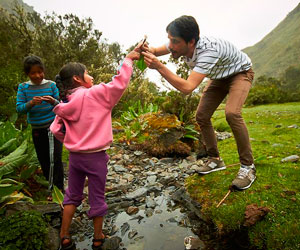
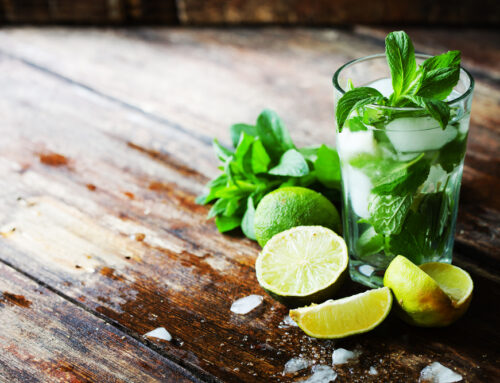
![Making Mealtime Matter with La Familia: Easy Sofrito [Video]](https://thelatinkitchen.com/wp-content/uploads/2015/10/sofrito-shutterstock__0-500x383.jpg)
![Easy Latin Smoothies: Goji Berry Smoothie [Video]](https://thelatinkitchen.com/wp-content/uploads/2015/12/goji_berry-shutterstock_-500x383.jpg)
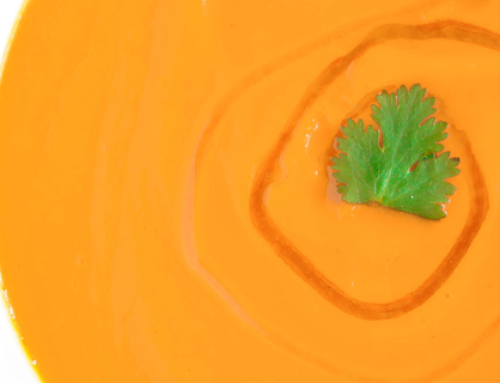
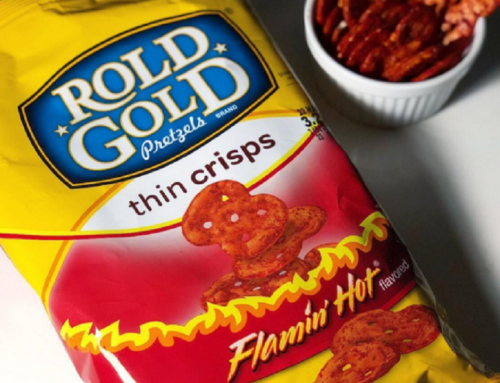



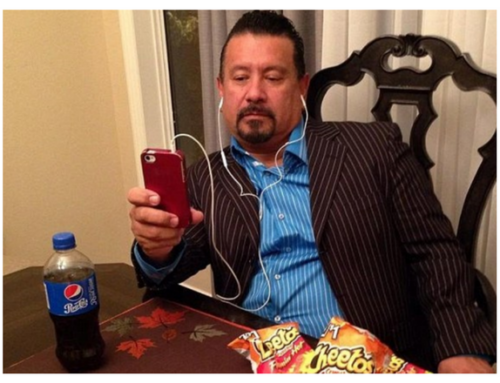
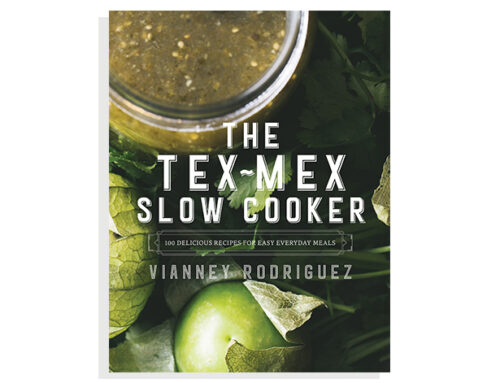
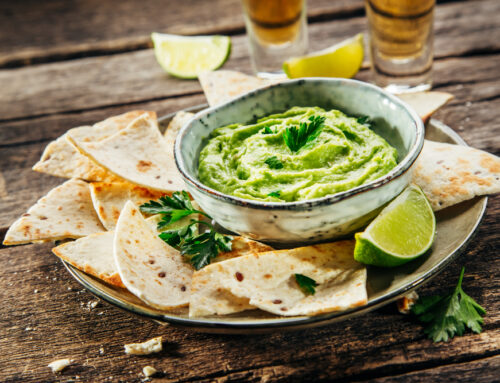

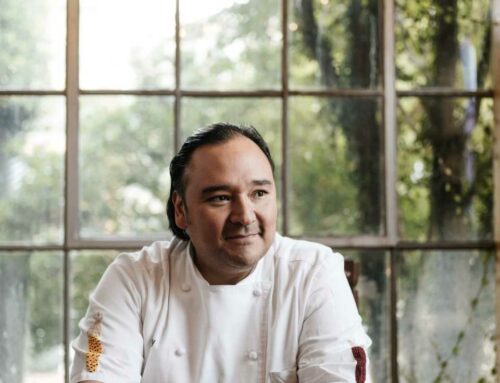

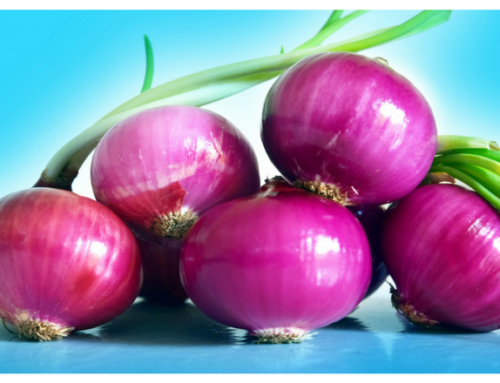



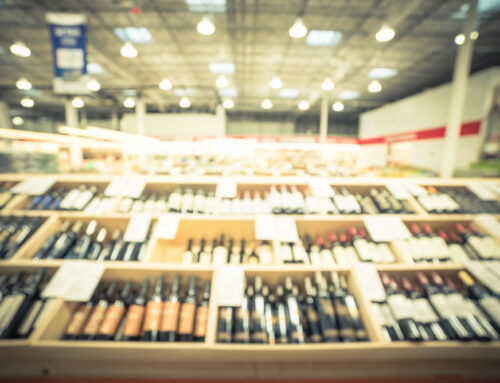
![Fun and Fast Recipes: Fiesta Cabbage Salad [Video]](https://thelatinkitchen.com/wp-content/uploads/2015/11/fiesta_cabbage_slaw-shutterstock_-500x383.jpg)
